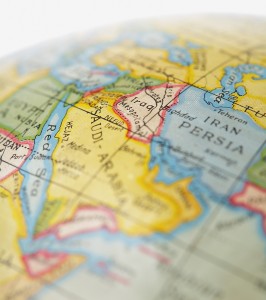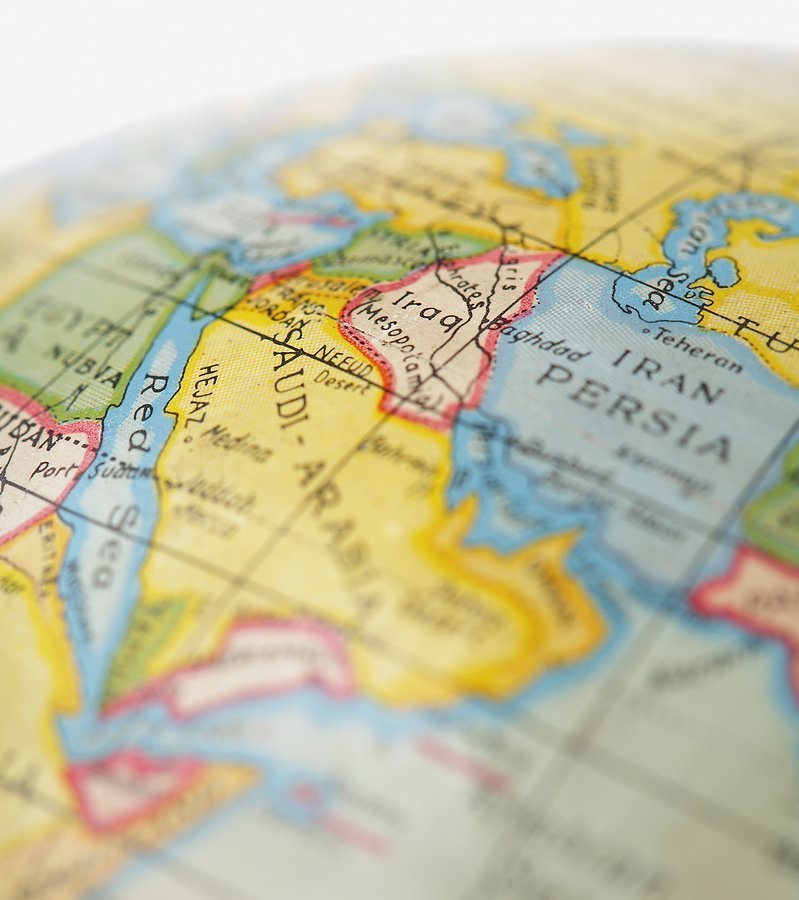6/10/12: By Richard Weitz
Wielding power in a country so easily divided by competing allegiances and identities has never been easy.
Although Iraqis’ nationalist sentiments are strong, the nation faces the challenge of overcoming major internal divisions. These include sectarian tensions between the majority Shiites and the minority Sunnis, ethnic challenges between the majority Arabs and the Kurds and other minorities, territorial divisions between city and country dwellers, and other differences.
Political tensions can amplify these divisions as well as mitigate them.
The Shiites have been enjoying their new-found preeminence for the first time in modern Iraqi history.
Shiite clerics have appointed governors, enforced religious laws on civil affairs, and provided health care, financial aid, and other services to the poor. In the holy cities of Karbala and Najaf, Shiite clerics are leading self-declared governments. The United States and other foreign actors have been pressing the Shiites, with only partial success, to establish inclusive governments in order to dissuade more members of the minority Sunnis from resorting to force to defend their interests.
Sunnis, previously on top, resent their diminished status.
They also accuse the Shiite-dominated Iraqi government in Baghdad of deliberately discriminating against them.
For example, they claim that the government has been using de-Baathification to deny Sunnis their political rights by excluding or removing Sunnis from government jobs on trumped up charges of collaborating with Saddam or al-Qaeda in Iraq (AQI) but with little evidence.

Meanwhile, Arab-Kurdish tensions in Iraq manifest themselves in territory disputes, constitutional disagreements, and diverging foreign policy orientations. The Kurdish question remains a pressing issue in the Middle East at large as well as within Iraq given that many Kurds live in Turkey, Syria, and Iran.
It was scarcely a century ago that British claimed the three Ottoman provinces of Basra, Baghdad and Mosul and reconstituted these territories as the sovereign state of Iraq.
The country’s western half consists mostly of sparsely populated desert. The southernmost province of Basra contains nearly 60 percent of the country’s population and is primarily inhabited by Shiite Arabs. The central province of Baghdad has 20 percent of the population, comprised of predominantly Sunni Arabs. The remaining 20 percent of Iraqis are situated in the northernmost province of Mosul. These people are mostly Sunni Kurdish with pockets of Arab, Turkmen, and other ethnic minorities.
A Christian Arab minority has long lived in Iraq, but many Christians have fled the country in recent year. They have been heavily persecuted by other Iraqis, with occasional mass bombings of churches and other Christian targets, since Saddam’s fall in 2003.
For most of Iraq’s history, including under Saddam Hussein, the Sunni minority monopolized political power by centralizing it in Baghdad while coopting and repressing the Shiite Arabs and Sunni Kurds.
Both the Ottoman and the British Empires empowered minority Sunnis to exercise authority on their behalf over the majority Shiites as well as the Kurds and other Iraqi minorities.
The Sunnis retained power following Iraq’s independence under a monarchy and then after the 1958 coup, which empowered a nationalist military faction that expressed solidarity with other Sunni Arab countries. After he consolidated power, Saddam suppressed both Shiite and the Kurdish nationalists while rallying many Shiites behind his regime in its war with Iran.
The high rates of intermarriage and co-location among Iraqi minority groups historically buffered these tensions but proved unable to prevent the descent into sectarian bloodletting in 2007 and 2008, when AQI waged a terrorist war on the Shiite majority that had gained political power in the 2005 parliamentary elections.
Prime Minister Nouri al-Maliki, leader of a loose alliance of Islamic Shiite Arab political parties, emerged as the winner of that ballot.
In the parliamentary elections of 2010, al-Maliki’s State of Law coalition garnered slightly fewer seats than fellow Shiite Allawi’s more inclusive and secular Iraqi National Movement, but Maliki retained power because he was more able to assemble a majority in the national parliament.
The two political blocs have been feuding ever since, with al-Maliki slowly getting the upper hand but with most governmental affairs paralyzed in the interim. The situation prevented the appointment of a new Iraqi defense minister and made it impossible for the Iraqi government to offer the U.S. the legal guarantees needed to keep a large U.S. military force in Iraq beyond 2011.
The political disputes also have amplified ethnic tensions. Many Sunnis accuse Maliki’s Shiite-led Iraqi government of being sectarian, pointing to factors such as the disproportionate number of Sunni detainees in Iraqi prisons and efforts to weed out Sunnis from government jobs.
Shiites continue to employ de-Baathification as a discriminatory political weapon to threaten the Sunnis’ ability to participate effectively in national politics. The danger is that alienated Sunnis would be tempted to engage in violence and other disruptive behavior in Iraq’s still traumatized and fractured society.
Radical Shite cleric Muqtada Sadr in particular wields considerable divisive influence in Iraqi politics. He emerged as a leading Shiite fundamentalist after the U.S.-led invasion in 2003. Like Hezbollah in Lebanon, Sadr’s movement offers social services to the poor and simple messages for extremists. His Mahdi Army militia was one of the strongest anti-American forces in the country. His firm opposition was largely responsible for preventing an extension of a U.S. military presence in Iraq.
Sadr formally disbanded the Mahdi Army after al-Maliki boldly used the Iraqi Security Forces (ISF) to defeat it in 2008, but his supporters maintain a small military wing known as the Promised Day Brigade (PDB) that fights with other Shiite and Sunni militias as well as the Iraqi government. Al-Maliki’s suppression of the Mahdi Army in 2008 burnished his credentials as a strong and effective nationalist leader, and even gained him short-lived Sunni support, which has now largely dissipated.
Although Sadr’s parliamentary group provided Maliki with the legislative majority he needed to remain in office after the inconclusive March 2010 national parliamentary elections, Sadr is no al-Maliki fan and initially demanded a new person as prime minister.
When al-Maliki’s political troubles returned in late 2011, Sadr’s faction sought to exploit the situation to call for new elections and a new prime minister. Al-Maliki returned the favor in early 2012 and tried to induce some of Sadr’s followers to defect and join his coalition.


